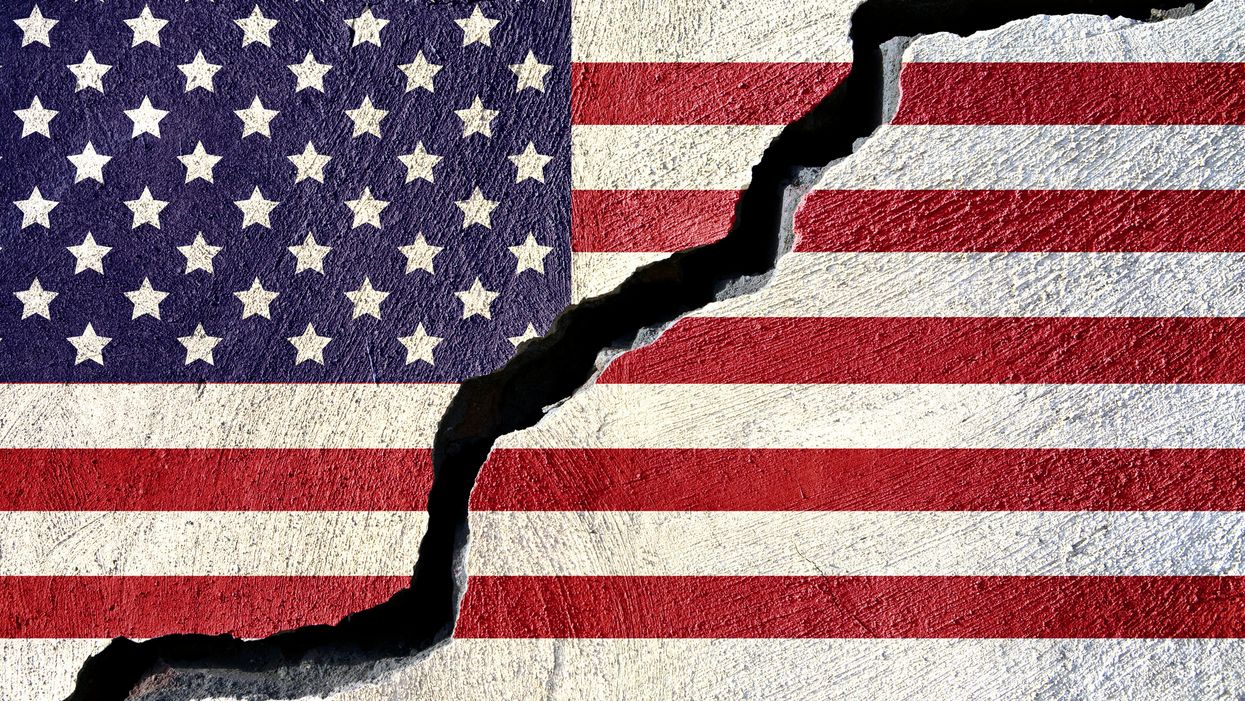Hanauer is director of the One America Movement, a nonprofit founded by faith and community leaders to address growing divisions in American society.
There is a false notion in our national conversation right now that you have to choose between mushy calls for civility and standing up for "truth and justice." This misunderstands the nature of polarization, and it misunderstands the multi-faceted fight for actual truth and justice.
Julie Kohler of the Democracy Alliance recently made a series of standard arguments against what she calls "love politics." Kohler argued that focusing on the tone of our politics leaves us papering over the real injustices that have taken place in our history and are still taking place today. This can be true. She argued that the unmerited anger of the oppressor is not equivalent to the righteous anger of the oppressed. Absolutely true. And she argued that being nice to our opponents will not prevent the significant wrongs being perpetrated in our country by some of the people who wield power. This is unquestionably true.
Kohler is right to challenge political narratives rooted in love to be about more than sentimental politeness. If we're going to bring our country together, we need to do more than promote civility — we need to understand polarization for what it really is.
I direct an anti-polarization organization. In our work fighting division, we partner with a number of neuroscientists, social scientists, academics and experts who have worked to reduce conflict in countries around the world. They all see the warning signs here in the United States; many have shifted from working overseas to working here. None of them talk about "civility" or "tone."
What they talk about is the process of a society fragmenting into two increasingly irreconcilable teams. When that happens, a series of dynamics start to kick in that push us further and further apart. At these tipping points, polarization begins to fuel itself, rather than be fueled by disagreement over policies. When that happens, societies can move toward very, very dangerous outcomes.
Consider that 20 percent of Democrats and 15 percent of Republicans said recently that they sometimes feel like the country would be better off if large numbers of members of the other party simply died. Consider that the Fund for Peace ranks the United States as having the worst trending social cohesion indicators of any country in the world over the past five years. Consider that the research shows that our divides are increasingly about our identities (who we are) and less and less about our ideologies (what we believe).
We can negotiate with the other side about what we believe. We can't negotiate about who we are.
That is what polarization is about. Not "civility." Not "tone." Incivility can certainly deepen polarization (when's the last time you carefully considered the opinions of a person screaming at you and calling you names?). But calling for everyone to be civil is missing the larger dynamics at play. And caricaturing anti-polarization work as being about asking people to "calm down" (as Kohler put it) is misunderstanding the true purpose of the work.
So yes, polarization should worry us — not because it might lead to people not being nice to each other when they argue politics, but because it might lead to our country fracturing irreparably. And with that fracturing comes increased violence and hate.
And polarization should worry us because it makes it harder to address the issues that impact people's lives. Kohler was right that truth and justice are more important than civility. Civility isn't more important than children being separated from their parents at the border, or communities being decimated by closed factories, or racism or the opioid crisis. But polarization makes it harder to solve those problems. For instance, some of our polarization is "false." For example, a forthcoming Beyond Conflict study found that on issues of border security, both Democrats and Republicans believe that the divide between members of the two parties is twice as big as it actually is. Once we realize we don't disagree as deeply as we think we do, collaboration is a lot more likely.
Kohler was right that we do need a politics of love that goes deeper — an effort to bridge our deepening divides that accounts for our history and for the lived experiences of Americans whose voices aren't often fully represented in our political system (and those Americans exist on the right and left both). The One America Movement brings communities together across divides to act on issues that matter in their communities. Through that collaboration, participants build trust. And when they trust each other, they can begin to have difficult conversations about the really tough issues: racism, identity, history.
These conversations must then be converted into action. When we are truly in relationships with each other, our neighbor's concerns become our concerns. Collective action across divides is powerful — and in many cases, is what changes public policy in ways that truly make a difference in people's lives.
Our choice isn't between civility and justice. Our choice is whether we are going to allow our country to fracture beyond repair. If we do, truth and justice won't be the winners.



















